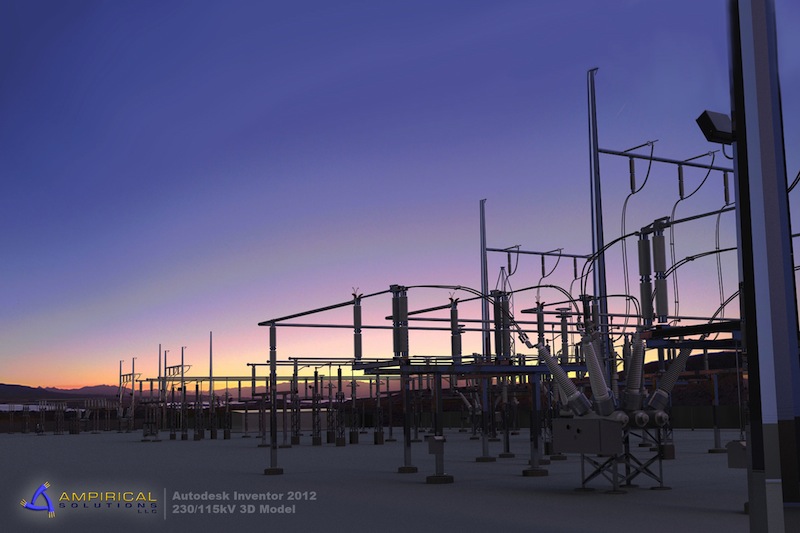Looking back, creating an AEC start-up during the brutal recession of the early 2000’s sounds like the worst timing imaginable. Sounds like a great way to lose everything, a great way to regret chasing a dream, a great way to move back in with your parents. What it doesn’t sound like is the beginning of a success story that defies all logic and luck and proves that 3 people with a big dream can actually become more profitable than they ever imagined. Here’s Ampirical’s incredible story.
Let’s get this straight: Ampirical isn’t just successful—it’s nationally recognized and shattering predictions by growing over 2,000% in revenue in the last seven years.
Ampirical went from three employees to being in the Top 25 of Engineering on Inc. Magazine’s Top 500|5000 fastest growing private companies in just seven years. And they can actually pinpoint why.
Ampirical, By the Numbers:
Staff growth over seven years: From three employees to 77
Percentage staff growth = 2,466%
Engineering revenue in 2006: $391,000
Engineering revenue in 2012: $9,375,000
Revenue growth: 2,297%
Ok, seriously—a comma? Who has a comma in their growth percentage? What is Ampirical doing that makes them so amazing?
First off, their engineering, architectural and surveying work is heralded as a benchmark in the industry and companies from all over the country seek them out for it. No cutting corners there.
But secondly, they prioritize beautifully and their office efficiency is off the charts, so they’re running at maximum billable hours at all times.
For those office management tasks, they credit BillQuick for speeding up their cash flow and helping them “spoil” their regular clients. Here’s how it breaks down:
First They Sped Up Cash Flow
Pamela Flucke, CPA and Controller at Ampirical explains, “BillQuick sped up the invoicing process immensely because all the required information for our workflow is kept in one spot. Previously, we kept time and expense entries in QuickBooks and we had to sync time. Now we’ve eliminated that step entirely. It’s a lot more user-friendly. For example, with QuickBooks, we could only manage to create and send 20-25 invoices a month. Now we’re able to do 100+ a month. It’s grown by leaps and bounds. So as a result our cash flow has improved due to faster cycle time. We typically email instead of manual mail and that saves time too.”
Ampirical credits BQE's BillQuick for speeding up the firm's cash flow.
Then They Managed Budgets Better
Knowing where you stand in regards to the budget is easy when you can automate reporting, Flucke explains. “Project managers are running reports in BillQuick and having them delivered to their email every Monday morning, so instead of having to manually check how many hours they’ve spent so far and how many they have left in their budget, they just know. They’re also starting to manage their employee’s utilization levels with that. They don’t have to think about it—it’s one less thing, since it’s automatically generated.”
They Keep Clients Coming Back
When asked if it helps her juggle clients easier, Pamela laughs, “Yes! And each one wants to see something different on the invoice. We’re up to 20 custom invoices—we’re very accommodating to clients in that way—we like to spoil them. Most of them are repeat clients.”
Here’s How They Made All That Money
While the rest of their staff grew 60% from 2010-2012, and their number of invoices, time sheets and reports grew exponentially, they didn’t have to expand their admin staff. They only added more engineers and specialists to provide even better service, and as a result, their revenue skyrocketed without adding overhead for non-billable staff.
Learn how BillQuick can help you improve your cash flow too.
Read more about Ampirical’s impressive Inc. Top 500|5000 nod here.
Related Stories
MFPRO+ News | Jun 24, 2024
‘Yes in God’s Backyard’ movement could create more affordable housing
The so-called “Yes in God’s Backyard” (YIGBY) movement, where houses of worship convert their properties to housing, could help alleviate the serious housing crisis affecting many communities around the country.
Student Housing | Jun 20, 2024
How student housing developments are evolving to meet new expectations
The days of uninspired dorm rooms with little more than a bed and a communal bathroom down the hall are long gone. Students increasingly seek inclusive design, communities to enhance learning and living, and a focus on wellness that encompasses everything from meditation spaces to mental health resources.
Museums | Jun 20, 2024
Connecticut’s Bruce Museum more than doubles its size with a 42,000-sf, three-floor addition
In Greenwich, Conn., the Bruce Museum, a multidisciplinary institution highlighting art, science, and history, has undergone a campus revitalization and expansion that more than doubles the museum’s size. Designed by EskewDumezRipple and built by Turner Construction, the project includes a 42,000-sf, three-floor addition as well as a comprehensive renovation of the 32,500-sf museum, which was originally built as a private home in the mid-19th century and expanded in the early 1990s.
Building Technology | Jun 18, 2024
Could ‘smart’ building facades heat and cool buildings?
A promising research project looks at the possibilities for thermoelectric systems to thermally condition buildings, writes Mahsa Farid Mohajer, Sustainable Building Analyst with Stantec.
University Buildings | Jun 18, 2024
UC Riverside’s new School of Medicine building supports team-based learning, showcases passive design strategies
The University of California, Riverside, School of Medicine has opened the 94,576-sf, five-floor Education Building II (EDII). Created by the design-build team of CO Architects and Hensel Phelps, the medical school’s new home supports team-based student learning, offers social spaces, and provides departmental offices for faculty and staff.
Mass Timber | Jun 17, 2024
British Columbia hospital features mass timber community hall
The Cowichan District Hospital Replacement Project in Duncan, British Columbia, features an expansive community hall featuring mass timber construction. The hall, designed to promote social interaction and connection to give patients, families, and staff a warm and welcoming environment, connects a Diagnostic and Treatment (“D&T”) Block and Inpatient Tower.
Concrete Technology | Jun 17, 2024
MIT researchers are working on a way to use concrete as an electric battery
Researchers at MIT have developed a concrete mixture that can store electrical energy. The researchers say the mixture of water, cement, and carbon black could be used for building foundations and street paving.
Codes and Standards | Jun 17, 2024
Federal government releases national definition of a zero emissions building
The U.S. Department of Energy has released a new national definition of a zero emissions building. The definition is intended to provide industry guidance to support new and existing commercial and residential buildings to move towards zero emissions across the entire building sector, DOE says.
Multifamily Housing | Jun 14, 2024
AEC inspections are the key to financially viable office to residential adaptive reuse projects
About a year ago our industry was abuzz with an idea that seemed like a one-shot miracle cure for both the shockingly high rate of office vacancies and the worsening housing shortage. The seemingly simple idea of converting empty office buildings to multifamily residential seemed like an easy and elegant solution. However, in the intervening months we’ve seen only a handful of these conversions, despite near universal enthusiasm for the concept.
Healthcare Facilities | Jun 13, 2024
Top 10 trends in the hospital facilities market
BD+C evaluated more than a dozen of the nation's most prominent hospital construction projects to identify trends that are driving hospital design and construction in the $67 billion healthcare sector. Here’s what we found.


















